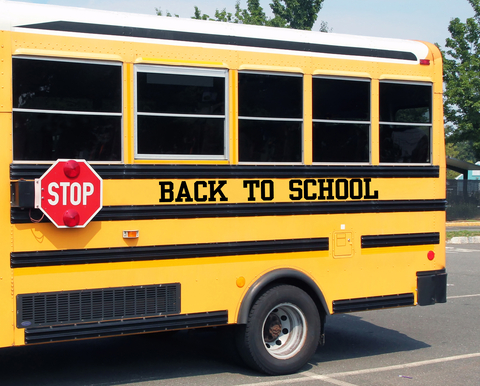
There were many struggles for parents, educators, and students to navigate in adapting to the “new normal” of virtual schooling as COVID19 wreaked havoc on our nation and our world this past year and a half. There was a lot of acknowledgement around these struggles as we did many things we had never done before and an almost camaraderie around having to all do it together. What many of us didn’t expect and anticipate was that going back to what was formerly considered “normal,” in-person school for example, would bring up another wave of feelings, uncertainties, and anxieties. As we speed towards the beginning of the school year, it is likely that there are many feelings surfacing for you and your children as you consider what it will mean to return to school this year. With so many unanswered questions, it may be inevitable that our children will experience some level of uncertainty that we cannot control. What we can do as parents is to support them and help them to build their coping skills around uncertainty and anxiety so that they feel as prepared as possible heading into the unknown.
- Name the Anxiety Without Judgment
A helpful place to start would be to help or make space for your child to name what they are anxious about without judgment. Ask them what they are worried about, unsure of how to approach, nervous to do again, etc. and just listen. If their concern seems silly or irrational to you, do not jump to point that out or explain why they don’t need to be anxious about that. Practice validating the concern, regardless of the size or impact, by saying something like “Wow, it sounds like you’re feeling pretty anxious about _______. I bet that feels scary and out of control to not know what to expect.” Do not rush to solve the problem for them, remove anything that stands in their way, or explain away what they are feeling. Simply sit with them in it and listen to where they are.
2. Remind Them of Their Strengths and Abilities
A lot of social anxiety revolves around questions of “what if I can’t…” or “what will others think if…” This can be a great opportunity to remind your kid of what their strengths are and to reinforce how capable they are. Avoid generic compliments (“you’re so smart”) or platitudes (“you can do anything you put your mind to”) and offer specific examples of your child’s strengths. Validate that many things feel hard or uncomfortable in this season but remind them of their resilience, the ways they’ve handled difficulties before, and that you’ll be there for them even if it doesn’t go well.
3. Help Them Rehearse Scenarios
In our own heads, it can be easy for fears and anxieties to spin out of control. If they’re open to it, help them to play out what could happen. Allow them to take you step-by-step through what they’re imagining. Help them to practice what they could say or do in a situation that makes them feel anxious, reminding them that oftentimes not knowing what to do can feel like the scariest part in the moment. With a curious tone, ask them “and what if that does happen?” as they share fears of being laughed at or judged or excluded. Reinforce that although there may be an uncomfortable or upsetting outcome, that they will continue to be okay and have other opportunities with these people or other friends.
It can be easy for any of us to believe that we are the only one struggling or suffering in some way, which makes that experience all the more anxiety producing and isolating. Especially in teenage years, the fear of being “other” or on the outside can motivate all kinds of behaviors. For teens struggling with social anxiety, the most common response tends to be to withdraw from or avoid social situations so that they don’t have to feel uncomfortable or worry about what others are thinking about them. It can be helpful to remind your child that many other kids (and adults!) are in a similar situation, feeling unsure how to re-engage socially and anxious about what school will be like this year. Help them to consider what they would think of a friend who did something awkward on the first few days back. Would they think mean thoughts of how lame they are or would they have empathy and feel like they get it? Remind them that if they are making generous assumptions about their friends, it is likely that their friends are thinking the same way.
Social anxiety is increasingly common for teens these days, especially since so many of their connections and interactions take place in a virtual space even before COVID. The pandemic seems to have allowed teens to get comfortable with having almost only virtual interactions and the anxiety around relating in person is real. There are also legitimate fears around the continued impact of the coronavirus and constantly changing standards on things like social distancing, mask wearing, and cleaning policies. As much as we try, we cannot protect our children from every possible threat, real or imagined. As a parent, your role is not to protect your child from every possible discomfort but rather to equip and support them to navigate challenges from a secure and empowered place. Remember that you are not alone in the heartache of watching your teen struggle socially but keep the long term view in mind as you support and validate where they are but also encourage them to push out of their comfort zones for the benefits of friendship and face-to-face connection.

